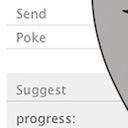Dissent is a magazine for people who worry. So here is something to worry about, highlighted by Barack Obama’s inaugural address. I am certainly glad that it was his inauguration, but what he said or, better, didn’t say, illustrates one …
When Irving Howe died suddenly, in May 1993, no one was sure whether Dissent would keep going. The magazine’s young-ish editors and writers wanted to see it continue, but we all felt that it would thrive only if Michael Walzer …
Now that I am about to become an ordinary Dissentnik, I want to describe how that happened once before—in 1954, when I held the first issue of the magazine in my hands. I grew up in the Popular Front, reading …
Governing the World: The History of an Idea by Mark Mazower Penguin, 2012, 416 pp. “La tot’ homoze in familje konunigare so debá,” sang Ludwig Zamenhof in 1877, in celebration of his nineteenth birthday. The language of the song, Esperanto, …
Is there a difference between a liberal and a social democrat that amounts to a distinction? If there is, is it a distinction with merit? Michael Walzer is a social democrat; it is an honorary badge. For a long time, …

Jeffrey Wasserstrom introduces a special section on China in the Spring 2013 issue: “Wherever this protean country moves next, it will be taken there not just by people whose names are widely known but by those whose dreams, desires, aspirations, and actions make up China’s 99 percent.”

A “flexible” corporation requires flexible workers, and as the labor market has shifted, so have the conditions placed on its participants. Flexibility doesn’t just manifest itself in global economic trends. It has now become a central part of the office worker’s performance.

Many municipal parks agencies have become charity cases, overly dependent upon support from conservancies and “Friends” groups in order to fulfill their missions. Some of the most glaring inequities in the United States are becoming manifest in the way our public spaces are designed, maintained, and regulated.

I drew the line at publicly aligning myself with “the abortion issue,” Roe v. Wade, and the institutional white feminists popularly associated with the ruling. Doing so seemed like socio-political suicide in my highly segregated, decidedly African American slice of Philadelphia community life.

Our bodies’ need for a short respite was pitted against our residents’ immediate bodily needs. Either choice we made, we blocked out something deeply human—either our care for our own bodies or our care for others. Caring should not feel like stealing time.

Facebook was, in its early days, powered by women—or rather, by photographs of women, and by the unceasing clicks of men and of women seeking out photos of women.

While we debate the travails of some of the world’s most privileged women, most women are up against the wall. And yet for much of mainstream feminist discourse, it’s as if the economy hasn’t shifted, or as if there’s nothing about it worth examining from the standpoint of gender.

The “end of men,” “having it all,” the “richer sex” — women, it would seem, have finally arrived. But this celebration is one part toast to the wealthy exceptions, and one part nonsense.
They’re almost all dead now, the renowned intellectuals who once belonged to the British Communist Party: Eric Hobsbawm most recently, along with Christopher Hill, George Rudé, E. P. Thompson, Raymond Williams, and Donna Torr. Although they did much to change …
Three Worlds of Relief: Race, Immigration, and the American Welfare State from the Progressive Era to the New Deal by Cybelle Fox Princeton University Press, 2012, 393 pp. Crossing Borders: Migration and Citizenship in the Twentieth-Century United States by Dorothee …














